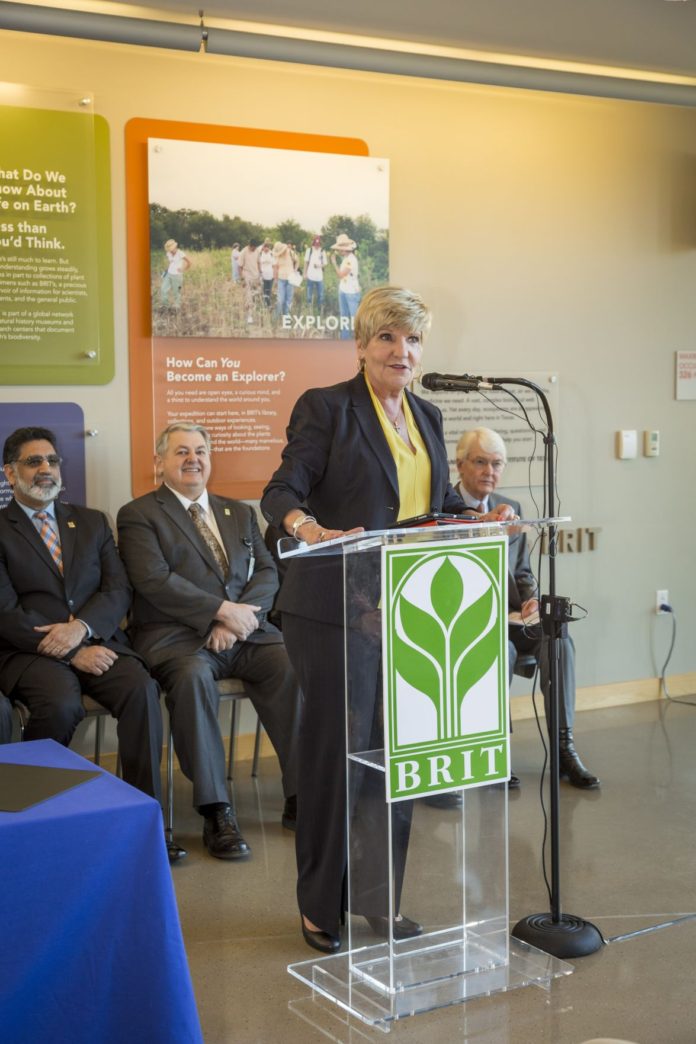Graduate level students at the University of Texas at Arlington will now have an opportunity for study at one of the top botanical research institutions in the state, Fort Worth’s BRIT.
At an event Monday morning, officials from UT Arlington and the Botanical Research Institute of Texas (BRIT) announced they are going to collaborate to offer expanded research opportunities for graduate level studies. The goal is to create new discoveries and enable job creation for area.
The research between BRIT and UT Arlington could lead to a variety of discoveries about higher crop yields, disease-resistant crop varieties, cheaper food, new biofuels and an improved understanding of plant biodiversity, according to the two organizations. These advancements could lead to job growth in the fields of environmental and plant science and sustainability, they said.
“This is what urban research institutions do,” said UT Arlington President Vistasp Karbhari said. “AS Tarrant County’s Carnegie Classification R-1 University, we are building partnerships and designing collaborations with partners like BRIT to leverage the strengths of the community. This partnership means not just new opportunities for students, but the potential for discovery that can impact Texas and beyond.”
The agreement also means that UT Arlington’s students and faculty gain access to a new research tool.
“This affiliation will enable our faculty and students to access one of the United States’ largest collections of plant specimens which is housed at BRIT while creating new opportunities for our renowned faculty to work with BRIT scientists to contribute to advances in emerging scientific fields,” said Morteza Khaled, dean of UTA’s College of Science.
For UT Arlington, the collaboration fits into the school’s Strategic Plan 2020 goals of working to build sustainable urban communities while mitigating global environmental impacts.
Ed Schneider, president and executive director of BRIT, noted that hundreds of biology students will have access to one of a kind research and the organization’s field staff. BRIT has more than a million plant specimens in its herbarium.
Schneider said there are an array of jobs that require botanical skills. “Many state, municipal, federal and other government jobs require the ability to understand this area,” he said. “Many of those jobs are conservation-related and there are also a lot of academic-related jobs that this will enable.”
Schneider said BRIT is pursuing similar collaborations with other area educational institutions. “We’re talking with others,” he said.
BRIT, now celebrating its 30th year, is a nonprofit, international research and education center to conserves and protects plant specimens and works on environmental issues.
www.brit.org






